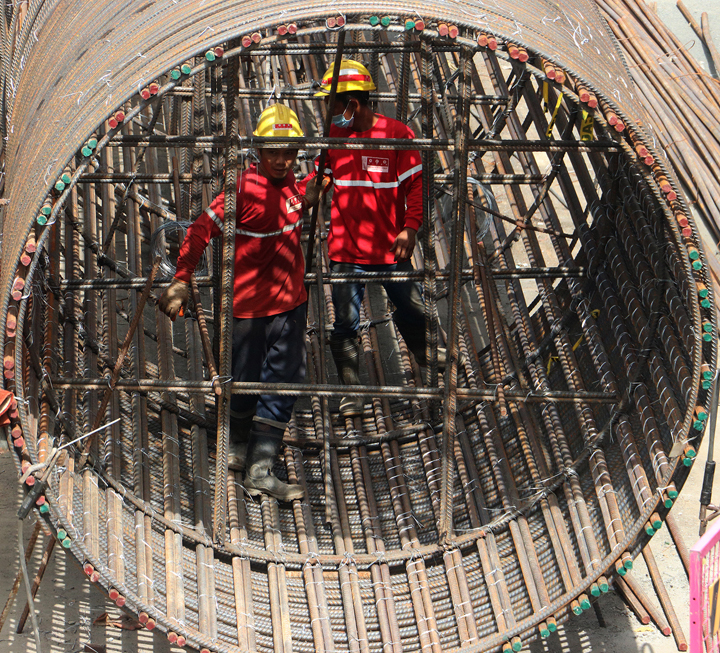
INFLATION has pushed Manila’s construction prices upwards, according to global engineering and consultancy solutions firm Arcadis’ latest International Construction Costs index.
According to the Arcadis 2023 International Construction Costs (ICC) report with the title “New Horizons,” Manila has ranked 81st in the study of comparative construction costs across 100 global cities.
In a statement on Tuesday, Arcadis noted that “Manila’s ranking held steady from last year’s index, but annual inflation hit its highest level in 14 years, pushing construction prices upwards.”
The company said pandemic-related restrictions in 2022, labor shortages, material costs and rising fuel prices still “posed challenges” to the construction industry.
Despite these obstacles, Arcadis Country Sales/Client Development Director Jocelyn Pagcatipunan said, “the industry was able to adapt well by implementing measures such as bundling packages for different projects to save time and cost, using locally sourced materials that meet standards, and early collaboration with suppliers to ensure the availability of required items and goods on site.”
Moving forward, Pagcatipunan said the industry is “likely” to continue to innovate and find new ways to mitigate high costs and maximize efficiency amid challenges that are expected to persist.
Across Asia, the report noted that cities such as Hong Kong, Tokyo and Macau are among the “top expensive cities” to build in.
Globally, the report showed that Geneva ranked first, followed by London, second; New York, third; and San Francisco, fourth.
Meanwhile, five of the “least expensive” cities in the index are found in Malaysia, Vietnam and India.
The 2023 Arcadis ICC index covers 100 of the world’s cities across six continents.
According to Arcadis, the cost comparison was developed covering 20 different building types, including residential, commercial and public sector developments, and is based on a survey of construction costs, a review of market conditions and the professional judgement of Arcadis’ global team of experts.
The calculations, the company said, are based in USD and indexed against the price range for each building type relative to Amsterdam.
Meanwhile, Arcadis noted, “The cost data behind the ICC rankings also account for changes to specification, with low-carbon design having an impact on construction pricing.”
“Short-term cost uplifts associated with upgraded specifications in both the UK and Europe can range from 5-7 percent for new homes and 7-10 percent for commercial buildings,” the company said.
However, Arcadis noted that with the need to mitigate against climate change and more “stringent” carbon reduction targets, sustainable buildings in prime locations are “increasingly in high demand.” This, it said, is resulting in the application of a “green premium” when it comes to how the most sustainable assets are being valued.
This means that, when prioritizing expenditure, owners and investors need to take a long-term view that will be critical to preserving value, the company said.
“It will be important to balance current asset, owner and occupier needs with the additional costs associated with, for example, complying with future energy performance and decarbonization standards, and mitigating against the effect of climate change exposure,” Arcadis’s statement read.
For her part, Arcadis Environmental Sustainability Associate Director Katherine Ann Resurreccion said sustainability in real estate has become a “norm” among top developers in the Philippines.
“EDGE has recently become popular due to its relatively inexpensive certification fees and a more streamlined certification process compared to the more well-known LEED and BERDE; WELL remains the go-to standard for health and wellness,” Resurreccion said.
“Certifications are still more prevalent in buildings located in prime locations regardless of building type. However, this might change as a result of the [Securities and Exchange Commission] SEC ruling that requires annual sustainability reporting for publicly listed companies,” she added.
Moving forward, Resurreccion said the company is anticipating more organizations to take on sustainability endeavors for their buildings and townships, “not necessarily certifications” but other “low-key” methods like energy optimization, switching to renewable energy and carbon offsetting.
Image credits: Nonoy Lacza
